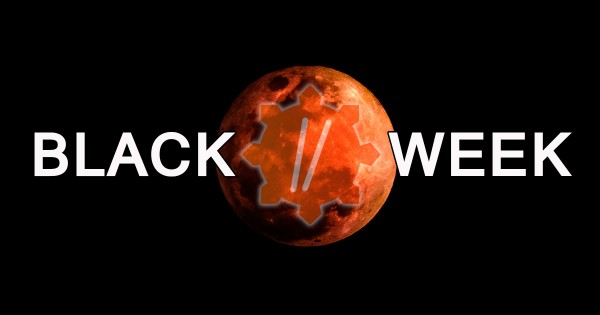"Black Friday" was invented as a shopping event in the United States. In Germany, the term has been at the centre of a grotesque legal dispute for several years. What is behind it?
Every year on the fourth Thursday in November, Americans celebrate Thanksgiving. The festival dates back to the early history of the colonization of North America and is today the most important family celebration in the culture of the United States. The Friday after the holiday is often used as a "bridge day" for shopping. Resourceful businessmen discovered this already in the 1960s. Since then, the retail business has been kicking off the Christmas business on Black Friday. Then almost all shops offer discounts and special offers.
Black Friday in Germany - an economy thriller
On Black Friday, U.S. retailers regularly report the highest sales of the year. In recent years, the shopping event has also arrived in Europe. The hype about Black Friday only hit Germany in 2006. That year, Apple offered special discounts for the first time. And as it is so often the case when the tech company leads the way, many other enterprises jumped on the bandwagon later on. According to studies, about 90 percent of all Germans today know Black Friday.
But at the end of 2016, many German online retailers unexpectedly found a cease-and-desist letter in their mail. In it, the bewildered recipients learned: "Black Friday" is protected as a trademark at the German Patent and Trade Mark Office (DPMA). The owner of the rights is - and now it's getting weird - a company called Super Union Holdings Ltd. based in Hong Kong. The Chinese company was represented by the Berlin media law firm Hogertz LLP. Their lawyers now asked the companies to file a cease-and-desist action. They were also asked to pay the lawyer's fee. This fee is usually calculated according to the amount in dispute. And Hogertz had set this quite high at 100,000 Euros.
Several companies did not want to accept this so easily and applied for the deletion of the trademark at the Patent Office. Applications came from PayPal, Puma, New Yorker, Tom Tailor and Mydealz, among others. But the DPMA took its time. Many experts today believe that the trademark should never have been registered by the Office in the first place. It is a commonly used term which is devoid of any distinctive character. At the end of March this year, the Patent Office also decided that the trade mark shall be cancelled.
Why is a Chinese company suing for a German trademark?
The magazine t3n did some research: In German-speaking countries there is only one company that benefits from this strange situation. Black Friday GmbH, headquartered in Vienna, has been operating an online portal for affiliate marketing since 2013. Online shops can book advertising cooperations there, in some cases at considerable prices. The company markets the products of its partners on the Internet and receives commissions for them. Konrad Kreid, the former sales director of Groupon, appears as managing director in the media. According to Kreid's own statements, the company has acquired the exclusive trademark rights to the term "Black Friday" from the mysterious Hong Kong company.
But in Germany, Black Friday GmbH has a persistent competitor: Simon Gall set up a similar portal as early as 2012. His company also earns money with Black Friday affiliate deals. This makes him a thorn in the side of the Austrians. They are apparently taking action against their competitor - with hard bandages and a Hongkong-Connection. And they don't admit defeat. The trademark owner's lawyers have already filed a complaint against the cancellation of the word mark. In addition, they announced to the IT trade magazine golem.de that they would continue to take action against the use of the term with cease-and-desist letters.
One consequence of the bizarre legal dispute is that every year retailers in Germany find creative ways to be able to offer discounts in mid-November without paying a lot of money or being prosecuted. In doing so, they use similar terms that are not controversial. One of them is "Black Week", which we at Fightingsticks are also using this year for our discount campaign.
Why is this day called Black Friday?
There are different theories about the origin of the name. One widely held hypothesis is that in the 1960s policemen first observed crowds of shopping enthusiasts on their way to the shops and described them as "black masses". Others suspect that the expression could refer to the black hands the merchants are supposed to have in the evening - from counting money...
But attention, danger of confusion: In Germany we historically call 24 October 1929 "Black Friday". On this fateful day, the world economic crisis began with a stock market crash on Wall Street. In the Anglo-American region, however, it is known as the "Black Thursday". This is mainly due to the time difference. The stock market crashed on Thursday according to the local time, but in Europe we only learned about it with the morning newspapers on Friday. There was no Internet yet.
Visit our BLACK WEEK now!


